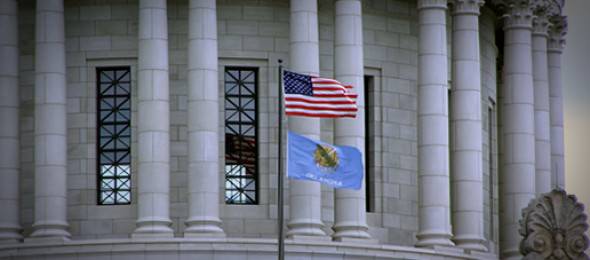The U.S. Supreme Court vacated an Oklahoma Supreme Court decision because the decision ignored a basic tenet of the Federal Arbitration Act (“FAA”) and did not allow the arbitrator to rule on the validity of the contracts.
Background
In Nitro-Lift Technologies, L.L.C. v. Eddie Lee Howard, et al, 568 U.S. ___ (Nov. 26, 2012), a dispute arose between Nitro-Lift Technologies (“Nitro-Lift”) and two of its former employees, Eddie Lee Howard and Shane D. Schneider (“employees”). The employees each entered into a contract with Nitro-Lift that contained a confidentiality agreement, noncompetition agreement, and arbitration clause.
After working for Nitro-Lift in Oklahoma, Texas, and Arkansas, the employees quit and began working for one of Nitro-Lift’s competitors. After Nitro-Lift filed for arbitration, the employees filed suit in an Oklahoma District Court and asked the court to declare the noncompetition agreements null and void. The district court dismissed the complaint and found that an arbitrator must settle the dispute, not the court.
The Oklahoma Supreme Court granted the employees’ appeal and ordered the parties to show cause why the matter should not be resolved by application of Okla. Stat., Tit. 15, §219A which limits the enforceability of noncompetition agreements. Nitro-Lift relied on several U.S. Supreme Court decisions and argued that any dispute regarding the contracts’ enforceability was a question for the arbitrator because the FAA applies in both state and federal courts.
The Oklahoma Supreme Court did not agree. The court found that the arbitration agreements did not prohibit judicial review of the underlying agreements and held that the noncompetition agreements were void and unenforceable as against Oklahoma public policy.
U.S. Supreme Court
After establishing jurisdiction, the Supreme Court addressed the Oklahoma Supreme Court decision. The Court stated that the Oklahoma Supreme Court disregarded U.S. Supreme Court precedents on the FAA.
The Court highlighted that it is well settled that the substantive law of the FAA is applicable in state and federal courts. Furthermore, the Court said that it is a mainstay of the FAA’s substantive law that attacks on the validity of the contract are to be resolved by the arbitrator in the first instance and not by a federal or state court.
The Court found that the contracts contained a valid arbitration agreement and the Oklahoma courts must abide by the FAA. The Court rejected the argument that the specific Oklahoma law governs over the general FAA that favors arbitration. That principle applies only to conflicts between laws of equivalent dignity, the Court said. The Court concluded that the general federal statute prevails over the specific state statute. Therefore, the arbitrator should have decided whether the covenants not to compete are valid as a matter of applicable state law. Accordingly, the Court vacated the decision and remanded for proceedings consistent with the opinion.
 Jeremy Clare is a law clerk at Karl Bayer, Dispute Resolution Expert. Jeremy received his J.D. from the University of Texas School of Law in 2012 and received a B.A. from the University of South Carolina where he studied political science.
Jeremy Clare is a law clerk at Karl Bayer, Dispute Resolution Expert. Jeremy received his J.D. from the University of Texas School of Law in 2012 and received a B.A. from the University of South Carolina where he studied political science.














